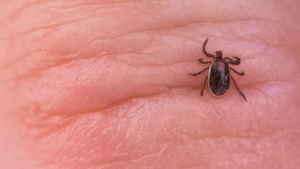High blood pressure, or hypertension, is a condition characterized by consistently elevated force of blood against artery walls. While a reading above 120/80 mmHg is generally considered high, individual variations can occur based on age, gender, and location. Often dubbed the "silent killer," high blood pressure frequently presents no noticeable symptoms, potentially leading to severe health complications like heart attack or stroke if left unmanaged. Contributing factors can range from genetics to lifestyle choices, emphasizing the importance of regular blood pressure monitoring, particularly for individuals over 30, those with obesity, or those with diabetes. Fortunately, slightly elevated blood pressure can often be addressed through lifestyle adjustments.
Here are five practical strategies to help you take control:
Your diet plays a pivotal role in managing blood pressure. A diet lacking in essential nutrients can be a primary contributor to hypertension. Focus on incorporating a variety of fruits, vegetables, whole grains, and lean proteins to support healthy blood vessels. Reducing sodium intake is crucial, as excessive salt consumption leads to water retention, consequently elevating blood pressure.

Eliminate processed and packaged foods, which are often laden with hidden sodium. Opt for preparing fresh meals at home, utilizing herbs and spices to enhance flavor. Consider adopting the DASH (Dietary Approaches to Stop Hypertension) diet, a proven eating plan designed to lower blood pressure.
Consistent physical activity strengthens your heart and improves blood flow throughout your body. Moreover, exercise assists in maintaining a healthy weight, reducing strain on your heart and blood vessels.
Aim for at least 30 minutes of moderate-intensity exercise, such as walking, cycling, or swimming, on most days of the week. Even incorporating simple activities like gardening or using the stairs can make a positive impact. If you're new to exercise, begin gradually and progressively increase your activity level.
Stress can trigger temporary spikes in blood pressure, and chronic stress can contribute to long-term hypertension. Implementing relaxation techniques to alleviate stress promotes a calm body and helps stabilize blood pressure.

Explore techniques like deep breathing exercises, meditation, yoga, or listening to soothing music. Prioritize distancing yourself from stressors whenever possible. Spending time outdoors, connecting with loved ones, and engaging in enjoyable hobbies can also lower stress levels. Adequate rest and sleep are equally vital for stress management.
Medical professionals generally advise that no amount of alcohol is truly safe. Excessive alcohol consumption can elevate blood pressure and diminish the effectiveness of blood pressure medications. Abstaining from alcohol entirely or consuming it in moderation is recommended.
While research on alcohol consumption continues, the detrimental effects of smoking are unequivocal. Smoking and tobacco use constrict blood vessels and damage the heart. Quitting smoking is one of the most impactful steps you can take to improve your blood pressure and overall health. Regardless of how long you've smoked, quitting now will yield noticeable benefits within a week.
Tracking your blood pressure enables you to assess the effectiveness of lifestyle changes and detect potential issues early. Home blood pressure monitors offer a convenient way to measure your blood pressure. To ensure accuracy, take measurements at the same time each day and record the readings for reference (averaging 2-3 readings taken one minute apart). Avoid random checks unless you feel unwell, as they can cause unnecessary anxiety. Maintain an upright posture in a chair while taking your blood pressure to avoid artificially elevated readings.
Disclaimer: This information is intended for educational purposes only and does not substitute professional medical advice. Always consult with a qualified healthcare provider for any blood pressure concerns.
Newer articles
Older articles
 Vijay Officially Named TVK's Chief Minister Hopeful for Tamil Nadu's 2026 Election
Vijay Officially Named TVK's Chief Minister Hopeful for Tamil Nadu's 2026 Election
 RJ Mahvash Prioritizes Work Over Buzz, Addresses Link-Up Speculation
RJ Mahvash Prioritizes Work Over Buzz, Addresses Link-Up Speculation
 UNESCO's World Heritage Wonders: Unveiling 10 Iconic Sites, From Petra to the Pyramids
UNESCO's World Heritage Wonders: Unveiling 10 Iconic Sites, From Petra to the Pyramids
 JPG to PDF: A Comprehensive Guide for Graphic Designers & Professionals
JPG to PDF: A Comprehensive Guide for Graphic Designers & Professionals
 iQoo Z9 Turbo: Rumored Specs Emerge – Snapdragon 8s Gen 3, 6000mAh Battery Highlighted
iQoo Z9 Turbo: Rumored Specs Emerge – Snapdragon 8s Gen 3, 6000mAh Battery Highlighted
 Shadman Islam Defends Bangladesh Batters After Day 1 Struggles Against Sri Lanka
Shadman Islam Defends Bangladesh Batters After Day 1 Struggles Against Sri Lanka
 England's Bold Claim: Could They Have Chased Down 450 Against India?
England's Bold Claim: Could They Have Chased Down 450 Against India?
 5 Often-Missed Warning Signs of Bladder Cancer You Need to Know
5 Often-Missed Warning Signs of Bladder Cancer You Need to Know
 KL Rahul Puts Country First, Prioritizes England Tests Over Newborn Child
KL Rahul Puts Country First, Prioritizes England Tests Over Newborn Child
 Tick Bite Paralyzes Fitness Influencer: A Wake-Up Call for Outdoor Enthusiasts
Tick Bite Paralyzes Fitness Influencer: A Wake-Up Call for Outdoor Enthusiasts